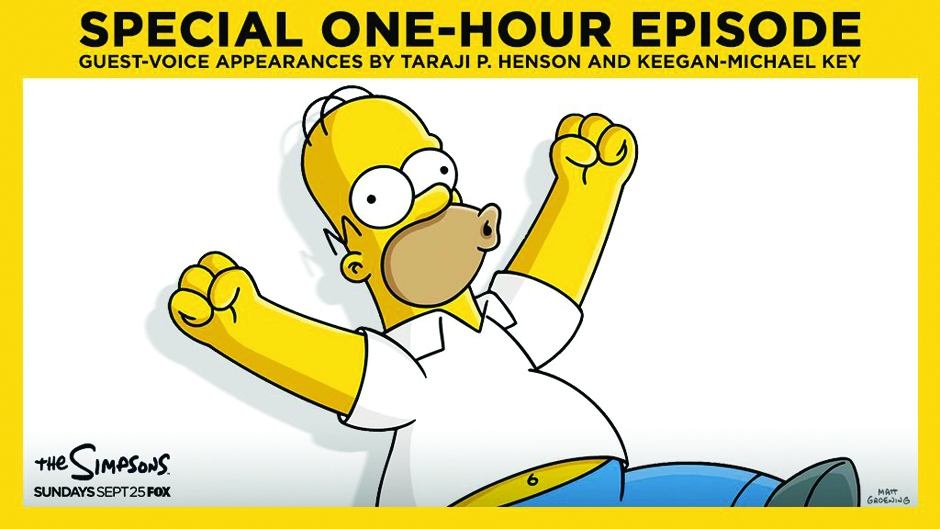

After 28 years, “The Simpsons” is beginning to see a drastic drop in its ratings despite promos like the one-hour special. The show experienced a more than 1.5 million drop in viewership last year alone.
By Josiah Martin | Staff Writer
After 28-years, “The Simpsons” has become a mainstay of American television. However, as of late, it has relied on cheap tricks for ratings instead of its once-praised writing and has suffered a decline in viewership as a result.
Viewership for the 27th season was down to an abysmal average of 4 million viewers per episode, the lowest in the show’s run. That number has not surpassed 10 million since season 16 in 2004 and 2005. This is disappointing enough for such a highly-regarded television series, but to make matters worse, the series has in recent years opted for highly-publicized gimmicky specials to draw in viewers instead of its typical light sitcom plot style.
Take, for example, the episode from Jan 15, 2017, “The Great Phatsby.” This episode was the first hour-long special in the show’s history and was heavily advertised as such. It also included a long list of guest stars, including Charles Barkley and Keegan-Michael Key. It was one of the highest-rated episodes of the season and the highest of Fox’s lineup that night.
However, it failed to draw people away from the concurrent Steelers v. Chiefs NFL game and was still over a million viewers short of the “normal” episode that preceded it the week before. If intentionally extending the episode a half hour into the game was an attempt to steal ratings away from the game, it failed.
Then there was last season’s “Simprovised,” an episode which was followed by a live Q&A segment with Homer Simpson, fielding questions from the viewing audience via telephone. As we’ve seen, the results of this experiment were lackluster, that particular episode only bringing in 2.8 million viewers.
These are just numbers, but they point at a larger trend. In the opinion of many critics and long-time fans, the show’s quality has been declining.
Unfortunately for the producers of the show itself, the viewers know this, and these constant attempts at grabbing attention for new episodes of the series suggests that Fox knows this. In the first few seasons of “The Simpsons,” the series operated basically as an animated version of the classic idea of the television sitcom. The plots were centered on the characters and very rarely departed from settings as simple as the house, the school or Homer’s place of work. Of course, there’s only so much you can do within these constraints, and the show quickly grew out of this format.
There’s nothing wrong with long specials and experimenting with the format of the animated sitcom. However, when you lose touch with the original intention and spirit of the show, with its focus on the dynamics of the Simpson family and heartfelt plots, that’s when constantly going over the top becomes an issue. “The Simpsons” has done exactly that.
So what are some possible solutions to this issue? Is it too late to return to form for “The Simpsons?” Maybe. If celebrity guest stars and hour-long specials can’t excite viewers, promising episodes full of “familial love and life lessons” will almost certainly put them to sleep. It seems that, as far as weekly interesting plots go, “The Simpsons” is nearly out of ideas. Perhaps, if the series stepped back from its weekly format in lieu of a few specials for year, they would have more time to craft episodes as meaningful as the original, and draw in the appropriate viewership simply out of excitement for another “Simpsons” episode.
The only thing that seems certain for the future of the series is that if the current trend continues, ratings and quality will continue to fall until Fox finally kills the show. Without a drastic change in personnel or style soon, there won’t be much “Simpsons” left.




